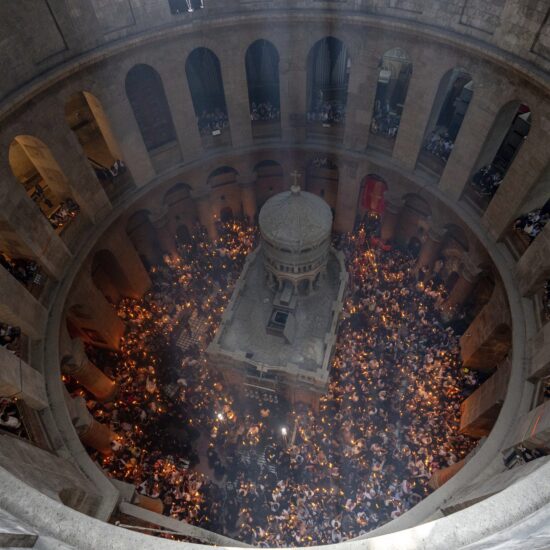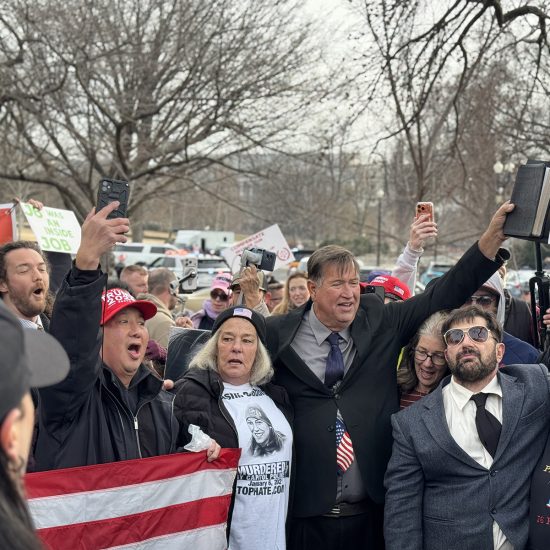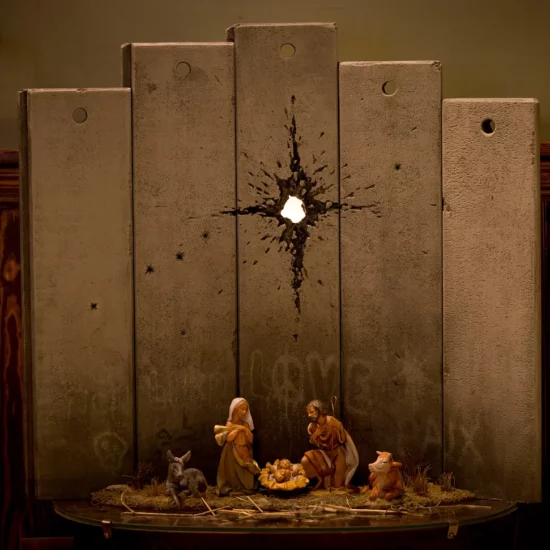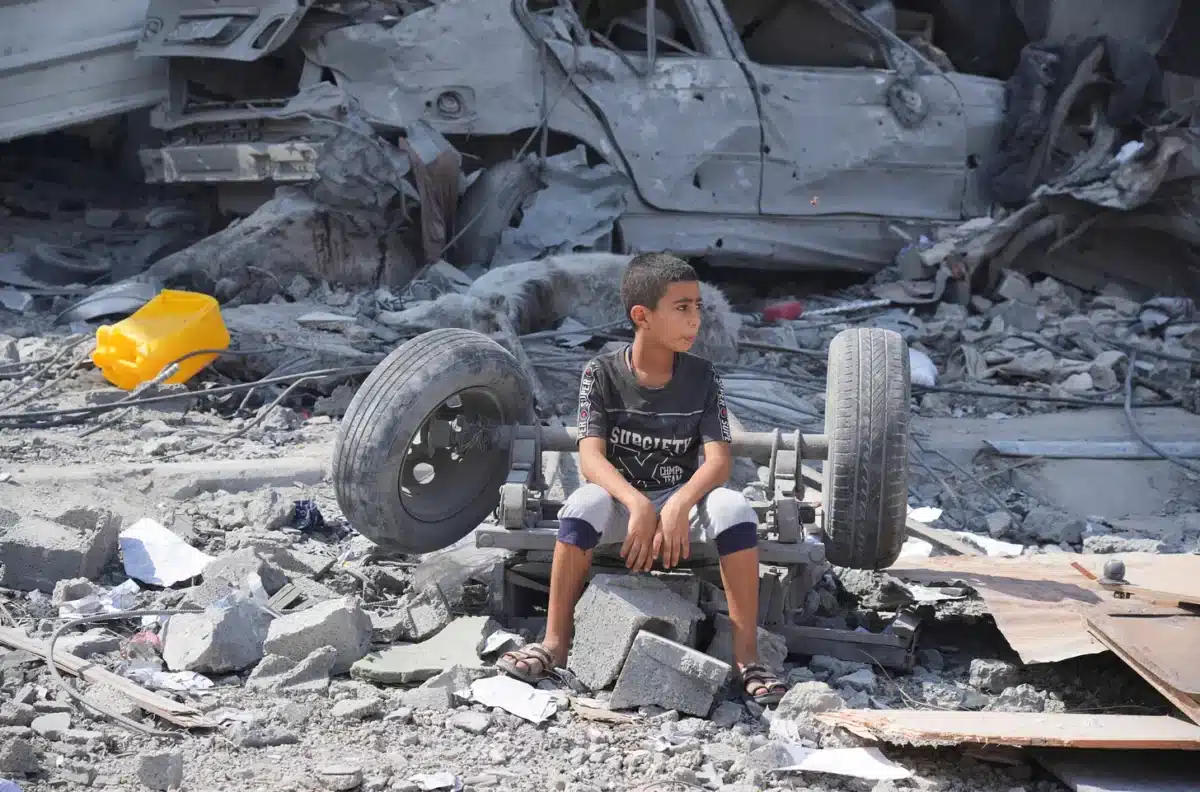
The heinous terrorist attack launched by Hamas against Israeli civilians on Oct. 7 rightfully sparked global condemnation. Some people shamefully have tried to defend the actions of Hamas by pointing to Israel’s blockade of the Gaza Strip. But past injustices don’t justify brutally slaughtering hundreds of civilians, including babies.
A new moral problem emerged in the days since the terrorist attack. While some tried to defend Hamas, others now attempt to justify any military action taken by Israel. But the atrocities of Hamas don’t justify slaughtering Palestinian civilians, including hundreds of children.
Consider the statement released last Wednesday (Oct 11) by the Southern Baptist Convention’s Ethics & Religious Liberty Commission. Signatories include SBC President Bart Barber, all of the SBC seminary presidents, several former SBC presidents, conservative commentator Erick Erickson, Christianity Today head Russell Moore, Kristen Waggoner of the Alliance Defending Freedom, conservative Methodist activist Mark Tooley, and preachers like Tony Evans, Greg Laurie and Ray Ortlund.
With the prominent names backing it, the statement received significant news attention, thus helping frame the public image of how U.S. Christians view the current situation (even though many other Christian denominations released less one-sided statements). The ERLC’s “Evangelical Statement in Support of Israel” declares they “fully support Israel’s right and duty to defend itself against further attack.”
“In keeping with Christian Just War tradition, we also affirm the legitimacy of Israel’s right to respond against those who have initiated these attacks as Romans 13 grants governments the power to bear the sword against those who commit such evil acts against innocent life,” the statement adds.
The statement doesn’t offer any other details about the Just War philosophy to suggest what kind of limits they might see in Israel’s response. That’s concerning since many of the signatories have a poor track record of applying the Just War ideals. Two decades ago, SBC leaders — many of them signing the new statement — urged the U.S. to invade Iraq and insisted it would be a “just war.”
While most Catholic and mainline Protestant leaders criticized the push for the Iraq invasion, the prophets of war got their way. Except it turned out to be a moral disaster. The initial justification for the war was based on false intelligence, it led to the deaths of hundreds of thousands of civilians and thousands of U.S. soldiers, it increased geopolitical instability, and it decimated the historic Christian population in Iraq. To put it simply: the 2003 invasion of Iraq was not a just war. Instead of repenting, SBC leaders are dusting off their arguments to justify another war.
Another problem with the statement’s lack of specificity is that by the time it came out four days after the terrorist attack, Israel had already started its military response. The issue was no longer simply about whether Israel had a just cause for responding but if they were actually responding in just ways. After all, the Just War framework doesn’t merely require nations establish a right to go to war (by meeting principles like having a just cause and proving it’s a last resort), but they must also follow right conduct within war. Such principles include distinguishing between enemy combatants and civilians, responding proportionally, only attacking targets that are militarily necessary, and not using evil weapons whose impacts cannot be appropriately limited or controlled. I’m not actually a fan of Just War theory as I think it still excuses too much violence and bloodshed, but at least it places significant limits on war.
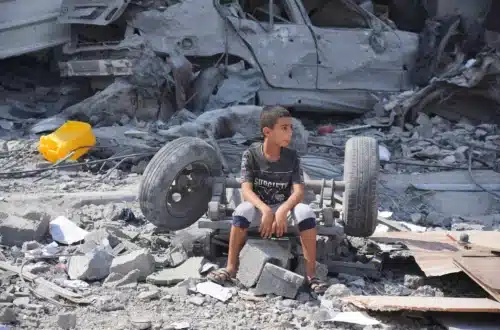
A Palestinian boy sits on the rubble of his building destroyed in an Israeli airstrike in Nuseirat camp in the Gaza Strip on Oct. 16, 2023. (Hatem Moussa/Associated Press)
By the time the ERLC released its statement, numerous reports had already emerged of problematic military actions by Israel, along with allegations by human rights organizations that Israel was potentially committing war crimes. But the statement ignored all of that to instead sanctify Israel’s actions as just.
I reached out to the ERLC on Friday as we learned even more details about Israel’s military actions. I specifically asked if the ERLC felt any of the specific actions already used by Israel violated Just War principles. I pointed out the bombing of civilian homes, the deaths of hundreds of children, the cutting off of electricity and water for the entire Gaza Strip, the use of white phosphorus that could violate international law, and the demand that more than a million civilians relocate (which a UN human rights expert said could be a war crime if enforced).
“The statement remains an accurate reflection of our sentiments at this time,” an ERLC spokesperson responded.
Apparently unbothered by any actions taken by Israel, the ERLC simply reiterated their “support of Israel” in light of Just War principles and Romans 13. As we saw two decades ago, a Christian philosophy designed to limit and restrict war is instead being weaponized to defend unjustifiable acts of collective punishment. And while the ERLC justifies the war, some Israeli government officials and Christians in the U.S. aren’t even pretending to push for a Just War. Instead, dangerous genocidal rhetoric is heating up. So this issue of A Public Witness looks at the unethical calls for leveling Gaza and how the Christian community in that land is responding during this time of tribulations.

The rest of this piece is only available to paid subscribers of the Word&Way e-newsletter A Public Witness. Subscribe today to read this essay and all previous issues, and receive future ones in your inbox.

